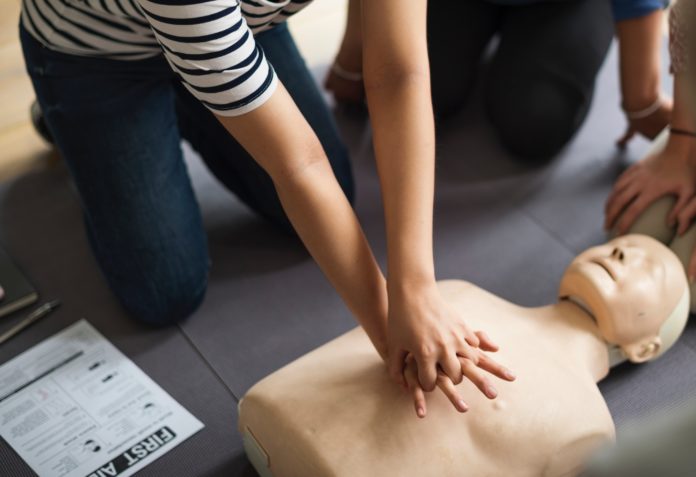New tool can train smart speakers like Alexa to monitor people for cardiac arrest
Researchers at the University of Washington have developed a new tool to monitor people for cardiac arrest while they’re asleep without touching them. A new skill for a smart speaker – like Google Home and Amazon Alexa – or smartphone lets the device detect the gasping sound of agonal breathing and call for help.
People experiencing cardiac arrest will suddenly become unresponsive and either stop breathing or gasp for air, a sign known as agonal breathing. Immediate CPR can double or triple someone’s chance of survival, but that requires a bystander to be present.
Cardiac arrests often occur outside of the hospital and in the privacy of someone’s home. Recent research suggests that one of the most common locations for an out-of-hospital cardiac arrest is in a patient’s bedroom, where no one is likely around or awake to respond and provide care.
People experiencing cardiac arrest will suddenly become unresponsive and either stop breathing or gasp for air, a sign known as agonal breathing. Immediate CPR can double or triple someone’s chance of survival
On average, the proof-of-concept tool, which was developed using real agonal breathing instances captured from 911 calls, detected agonal breathing events 97% of the time from up to 20 feet (or 6 meters) away. The findings are published June 19 in npj Digital Medicine.
“A lot of people have smart speakers in their homes, and these devices have amazing capabilities that we can take advantage of,” said co-corresponding author Shyam Gollakota, an associate professor in the UW’s Paul G. Allen School of Computer Science & Engineering. “We envision a contactless system that works by continuously and passively monitoring the bedroom for an agonal breathing event, and alerts anyone nearby to come provide CPR. And then if there’s no response, the device can automatically call 911.”
Agonal breathing is present for about 50% of people who experience cardiac arrests, according to 911 call data, and patients who take agonal breaths often have a better chance of surviving.
“This kind of breathing happens when a patient experiences really low oxygen levels,” said co-corresponding author Dr. Jacob Sunshine, an assistant professor of anesthesiology and pain medicine at the UW School of Medicine. “It’s sort of a guttural gasping noise, and its uniqueness makes it a good audio biomarker to use to identify if someone is experiencing a cardiac arrest.”
The researchers gathered sounds of agonal breathing from real 911 calls to Seattle’s Emergency Medical Services. Because cardiac arrest patients are often unconscious, bystanders recorded the agonal breathing sounds by putting their phones up to the patient’s mouth so that the dispatcher could determine whether the patient needed immediate CPR. The team collected 162 calls between 2009 and 2017 and extracted 2.5 seconds of audio at the start of each agonal breath to come up with a total of 236 clips. The team captured the recordings on different smart devices – an Amazon Alexa, an iPhone 5s and a Samsung Galaxy S4 – and used various machine learning techniques to boost the dataset to 7,316 positive clips.


